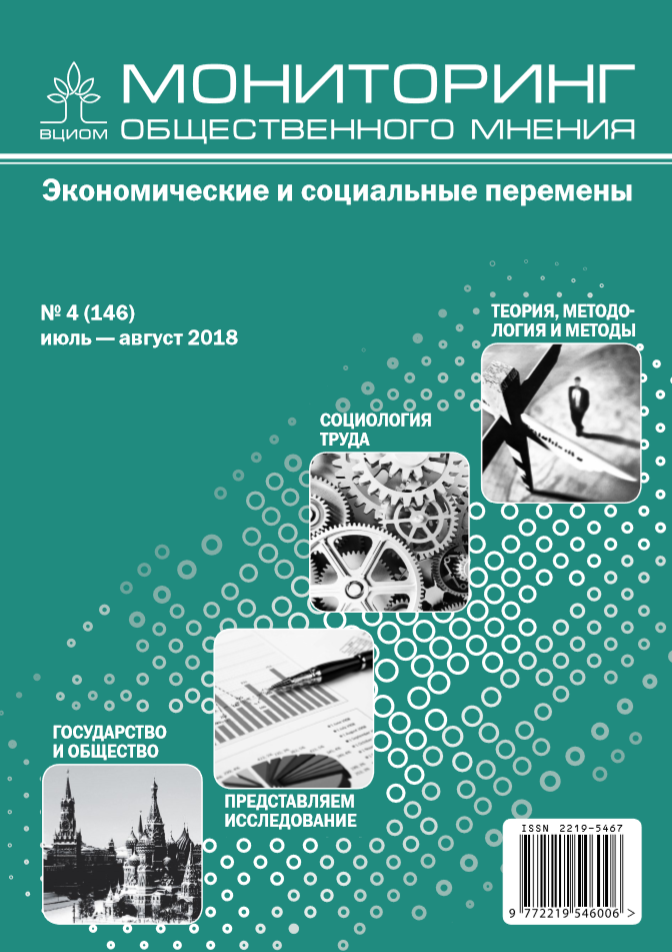Intention-based electoral forecasting: limits of accuracy of conventional model and its development perspectives with regard to emotional factors
DOI:
https://doi.org/10.14515/monitoring.2018.4.01Keywords:
electoral behavior, electoral forecasting, theory of reasoned action, theory of planned behavior, theory of attitude, attitude consistency, structural theory of attitude change, visual association test of attitudeAbstract
Over the recent years there have been disruptions of the functioning of the conventional model of electoral forecasting. The reason for the disruptions remains unclear, and field-specific studies following the most dramatic mistakes are focused on common accuracy-related issues (samples’ bias, socially desirable responding, etc.). The present article argues that inaccuracy take place as the conventional model fails to take into account emotional factors of voting behavior. Using empirical evidence of the 2016 State Duma and the 2018 presidential elections the author examines the applicability of Rosenberg’s consistency theory to the voting behavior and the influence of an additional filter (affective attitudes of voters towards candidates) on the accuracy of the results. The findings suggest that mismatching attitude towards different electoral alternatives is well fixed and regular. In this respect, adding the factor of affective attitudes as an additional filter in the forecasting model can continuously increase the forecasting accuracy. In full accordance with the proposed model, this phenomenon is well observed in the case of higher political uncertainty and a relative mismatch in attitudes (2016) and least observed in the case of lower political uncertainty and a relative attitude-behavior consistency (2018). The importance of the problem formulated by the author arises from a high probability of significant political uncertainty in the 2021 and 2024 elections. In terms of theory and methodology, the obtained results raise a question about possible improvements essential for the conventional forecasting model.






